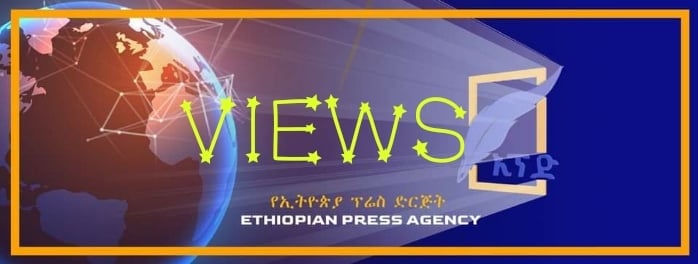
BY WOSSENSEGED ASSEFA –
“If you do not take an interest in the affairs of your government, then you are doomed to live under the rule of fools.” Wise words from the Greek philosopher Plato, and although spoken more than 2000 years ago we see the truth of that bold statement playout in the very world we live in now. Let us take for example democratic countries, where people are involved and participate in politics, it is clear that they have enjoyed much growth and prosperity under different leaders. On the contrary not so far away, on the very same planet we see a titanic difference between those countries and countries where democracy is known only by name. The difference is clear, if the people participate in the country’s politics, they forge their own path and the power resides within the people. If they don’t, they have foolish and generally inhumane tyrannical leaders ruling them. This is why the participation of able citizens in elections is of immense importance in constructing the political atmosphere of a country, because without active citizens it is impossible to build a democratic nation.
Democracy, means a government in which the supreme power is vested in the people and exercised by them directly or indirectly through a system of representation usually involving periodically held free elections. In layman terms it means a government led by its people. However, it is clear that for the people to lead they must be actively participating and engaging in the only way to get power in democracy, elections. And as David Moore puts it, “Democracy is not a spectator sport, it’s a participatory event. If we don’t participate in it, it ceases to be a democracy.”
Elections are the sole mechanism in which the entire eligible population decides on their leadership, policy direction, and representation in democracies. The electoral process is complicated, and it necessitates a significant amount of administrative and organizational capacity. An electoral register must be prepared, ballot materials printed, employees hired and trained, and polling stations erected, among other things. It is costly to have such organizational capacity. Poor performance in any of these categories can result in the disenfranchisement of a large number of voters, as well as the integrity, validity, and outcome of elections. As a result, electoral process governance is of critical importance and it is costly to provide sufficient resources to oversee a nationwide electoral process.
Additionally, to have true democracy those electing must be able to understand and comprehend the process of democracy and they must also have a general knowledge of the politics of the country. If this is not the case those participating in the elections can easily be choused of their true electoral rights. This process, also known as “democratization”, takes time and the shift to a more democratic political regime, including real political reforms that move in that direction usually takes years and cost a ton. This transition could be a transition from an authoritarian government to a full democracy, a shift from an authoritarian to a semi-democratic political system, or a transition from a semi-authoritarian to a democratic political system. The process of democratization is usually hijacked by politicians who feed of the ignorance of the people leading back to tyranny under the name “democracy”.
A major problem with the political atmosphere in Ethiopia is the lack of consistent political discourse and a sudden reemergence of political sparks when the election period comes around every five years. There is little to no work done to better the political knowledge of the people and after drowsing for five years the people are rudely awakened by different political party’s election campaigns. Then just as suddenly as it had come upon them it leaves them to their slumber for five more years and the cycle continues.
It is known that the electoral process in this country forces us to choose parties and not specific people. This is why it is necessary that we learn to take our eyes of the people leading the parties, no matter how charismatic or charming they may be and focus on what goals the party has set for the foreseeable future. We should learn to differentiate between the leader and the intent and objectives behind the party that person leads. However, because of a lack of consistence in the political discourse there is little to zero awareness of the parties’ goals and agendas. This a very damaging and deconstructive habit that needs to be taken down and, in its place, a more active and consistent political discourse atmosphere should be established. This will help educate and raise the awareness of the general population leading to better and critical choices during the elections. For how can you ask someone to truly choose if they do not know what effects the choices might have? It is clear this type of choice would only lead to two outcomes; either the person chooses blindly or is coaxed into choosing what another party wants. Unless a more active and consistent political discourse atmosphere is established our people will stay unaware and ignorant to the political climate leading to the failure of the establishment of a truly democratic nation.
One well known measurement of the “level of democracy” of a country is the Democracy Index, which is compiled by the Economist Intelligence Unit (EIU), the research branch of the Economist Group, a UK-based private enterprise that produces the weekly newspaper The Economist. The Democratic Index is an index that claims to be able to assess the level of democracy in 167 countries, 166 of which are sovereign states and 164 of which are UN member states.
The index is based on 60 factors that measure pluralism, civil freedoms, and political culture and is divided into five categories. The index categorizes each country into one of four regime types: full democracies, flawed democracies, hybrid regimes, and authoritarian regimes, and additionally uses a numerical score which ranks the most democratic at a score of 10 and the least democratic at a score of 0. According to this index our country Ethiopia has a score of 3.38 and is classified under the authoritarian regime category. Recently this has showing minor signs of improvement but there is clearly a long way to go for democracy to be established firmly in Ethiopian politics.
We may not see or experience an effective and efficient in the coming election and it may take six maybe seven more elections to experience one of a true democratic fortitude. This however does not mean we should give up on the process completely and abandon our responsibilities as citizens to vote because by voting now we are taking the first steps towards a better future, setting the bars higher for the next elections and so forth. By choosing to make our voices heard we are choosing to teach the next generation and those after it to accept and practice democracy as the sole and only way to power. To avoid the hijacking of this, the democratization process of our country, we the people should actively participate in the coming elections. This is why it is very important that most if not all of the nearly 40 million voters registered should show up at their respective polling stations and vote for those they want to see in power.
The Ethiopian Herald June 19/2021



